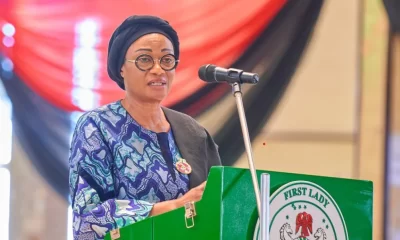A new public survey released on Tuesday by Socio-Economic Rights and Accountability Project (SERAP) has placed the Nigeria police as the most corrupt institution in Nigeria, while the power sector trails behind.
Other public institutions identified as corrupt by 70 per cent of Nigerians surveyed are: the judiciary, education and health ministries. The survey revealed that the level of corruption has not changed in the last 5 years.
The latest report by SERAP entitled Nigeria: Corruption Perception Survey was launched today (Tuesday) in Lagos.
According to the survey, “a bribe is paid in 54% of interactions with the police. In fact, there is a 63% probability that an average Nigerian would be asked to pay a bribe each time he or she interacted with the police. That is almost two out of three.”
The chair of the report launch, Professor Akin Oyebode said: “Nigeria is looked upon as a giant of Africa. Yet Nigeria could not conduct free, fair and credible elections. It is a smear on the image of Nigeria. If we do away with selective enforcement and condonation of corruption, we will build and live in a better society. Corruption is a refined form of stealing. The politicians are stealing our common patrimony. Development of the people is almost inversely proportional to the level of corruption.”
The report read in part: “Corruption remains a significant impediment to law enforcement, access to justice and basic public services such as affordable healthcare, education, and electricity supply. Several Nigerians have to pay a bribe to access police, judiciary, power, education and health services. Corruption is still a key concern in the country with 70% of Nigerians describing the level of corruption as high and in the same measure, stating that corruption levels either increased or remained the same in the last five years.
“The police were the most adversely ranked on this indicator. For every 100 police interactions reported by the respondents, there was a bribe paid in 54 interactions. The prevalence levels stood at 37% in the power sector and 18% in education,17.7% in the judiciary and 14% in the health sector.
“51% of the individuals that paid bribes to the police and 35% to the power sector believed this was the only way to access the services sought from the institutions. The ranking of the education sector and the judiciary was less adverse with 16% perceiving bribery as the main avenue of accessing services in the institutions, and health services recording 13%.
“The police and judiciary had the largest proportion of total bribes paid at 33% and 31% respectively. Bribes paid for education, power and health services accounted for 19%, 10.9 and 5% respectively of all bribes reported. The average amount of bribe paid by the respondents was highest among those who paid to the judiciary at about Naira 108,000 (US$ 298). All the other institutions ranked lower on this variable with Naira 12,253 and 11,566 reportedly paid to the police and education sectors, and Naira 6,462 and 5,143 paid for health and power services respectively.

 Entertainment6 days ago
Entertainment6 days ago
 Entertainment3 days ago
Entertainment3 days ago
 Comments and Issues6 days ago
Comments and Issues6 days ago
 Business7 days ago
Business7 days ago
 Comments and Issues6 days ago
Comments and Issues6 days ago
 Health1 week ago
Health1 week ago
 Health5 days ago
Health5 days ago
 Editorial Opinion1 week ago
Editorial Opinion1 week ago

